Overcoming Loneliness & Abuse, Kolkata Lady Helps 3500 Battle Depression
"I kept asking myself, right from childhood, ‘Do I not have any wishes? Am I not allowed to dream?’" says Manika Majumdar who now helps hundreds going through the same struggles as her
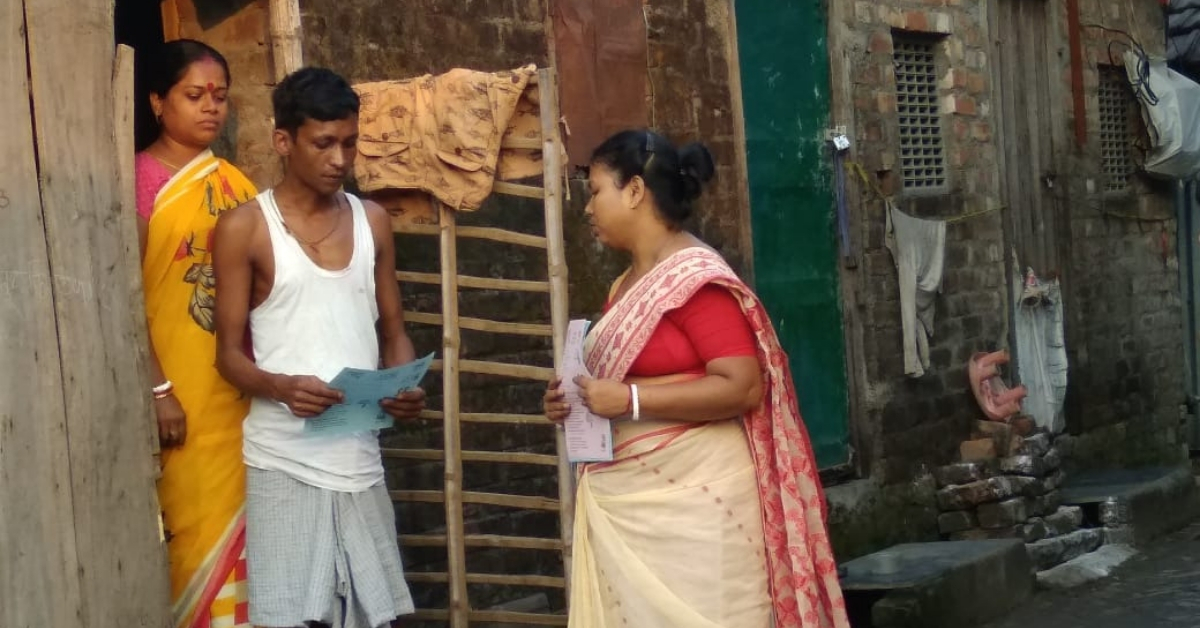
There was a time in Manika Majumdar’s life when she was confined to the four walls of her house, and forbidden to step out.
With absolutely no one in the world to talk to, the young child would keep asking herself if her interests and wishes were of any consequence at all.
Today, aged 40, Manika is a social worker, who ensures that other people in Kolkata, who come from a background similar to her, have someone to open up to and know that their feelings matter.
We spoke to Manika about what inspired her to choose this career and why it is important for more people to join the cause.
Taking time between two counselling sessions, the social worker spoke to The Better India.
“I was about a year and a half when I came to Kolkata from Bangladesh with my parents. My father wasn’t easy to be around. He wouldn’t work and would get into fights with everyone around us. My mother had to take care of me and work as a construction labourer. She earned a meagre wage, but that was our only source of income.”
Manika grew up watching her mother work day and night to support her family.
Her father, on the other hand, would not just get into fights with the neighbours, but also his wife. At times, he would even hit Manika.
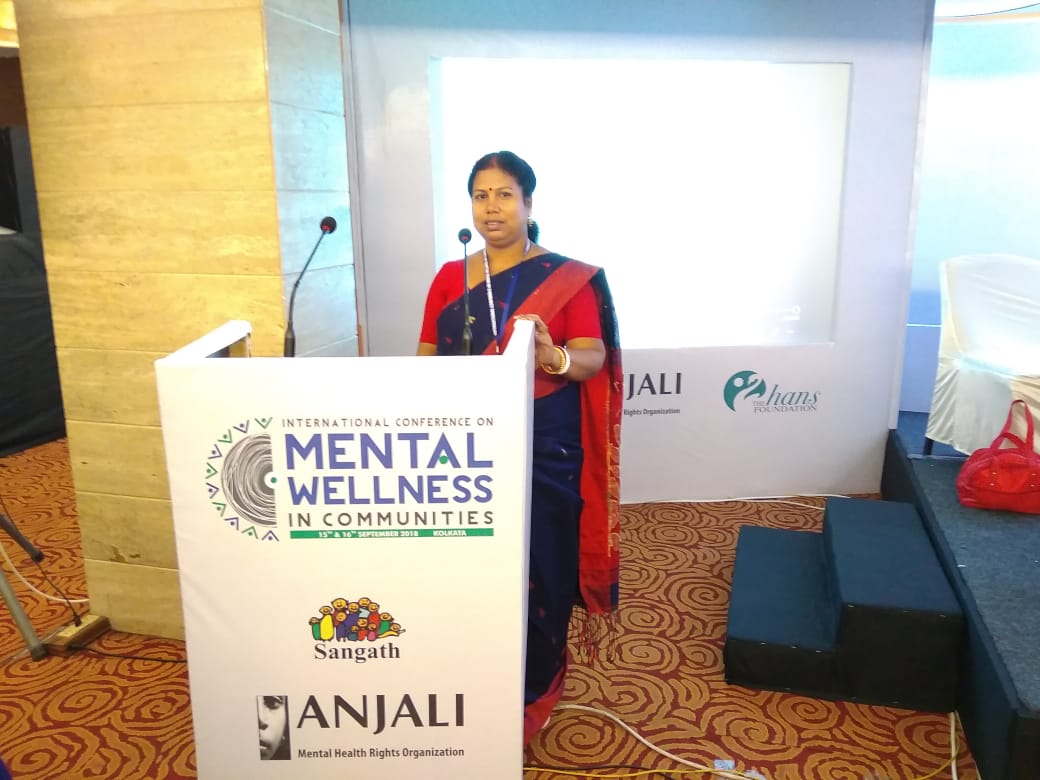
The young girl was growing up in a hostile environment and soon, figured out that it was wrong to complain or speak up because that would result in a thrashing from her father.
“When I was in Class 6, my parents were blessed with a baby boy. Since mother had to still go to work, she kept him in the care of the neighbouring didi for a while. But after I gave my final exams, didi said she couldn’t take care of the baby anymore. My father was unreliable, so I stepped in and offered to take care of my brother. I still don’t know whether I passed or failed my Class 6 exams; I had a younger brother to take care of,” she remembers.
Instead of acknowledging the fact that Manika had sacrificed her education to take care of her brother, her father became even more oppressive. She was not allowed to leave the house, play or take part in any of the activities that were common for kids of her age.
At the age of 17, on the insistence of her mother, Manika got married.
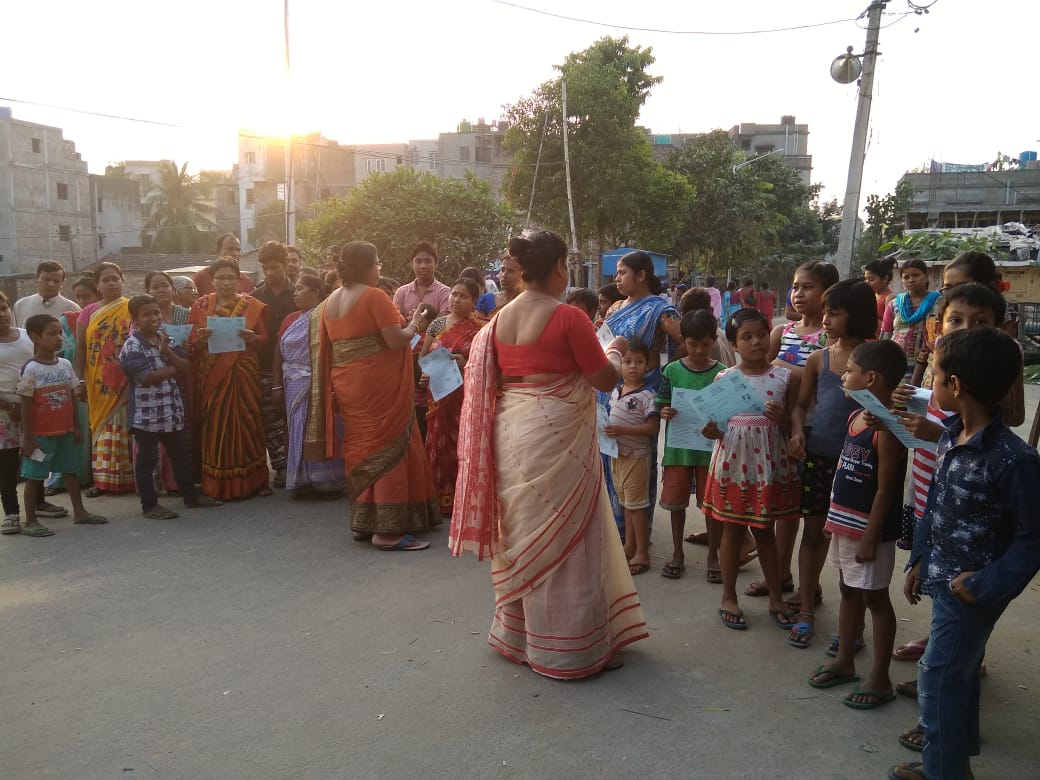
“I married into a big family,” she tells TBI. “However, life did not change for me and I was still not allowed to go out or speak to men. The questions I had asked myself right from childhood, continued. Did I not have any wishes? Was I not allowed to dream I had taken care of my brother and later, in-laws, but I never had anyone to open up to, and that always made me sad.”
An opportunity to work arose after a few ears when Manika’s husband told her that his income was too low to run the household and that she would have to start earning.
Jumping at the opportunity to meet new people, Manika joined a Self-Help Group (SHG) in Kolkata. The team of about 20 women would contribute a small amount of money to fulfil the needs of the other team members—whether to get their children admitted in school, whether for a wedding ceremony or such other things.
Manika was happy knowing that she has friends, but she still felt unfulfilled.
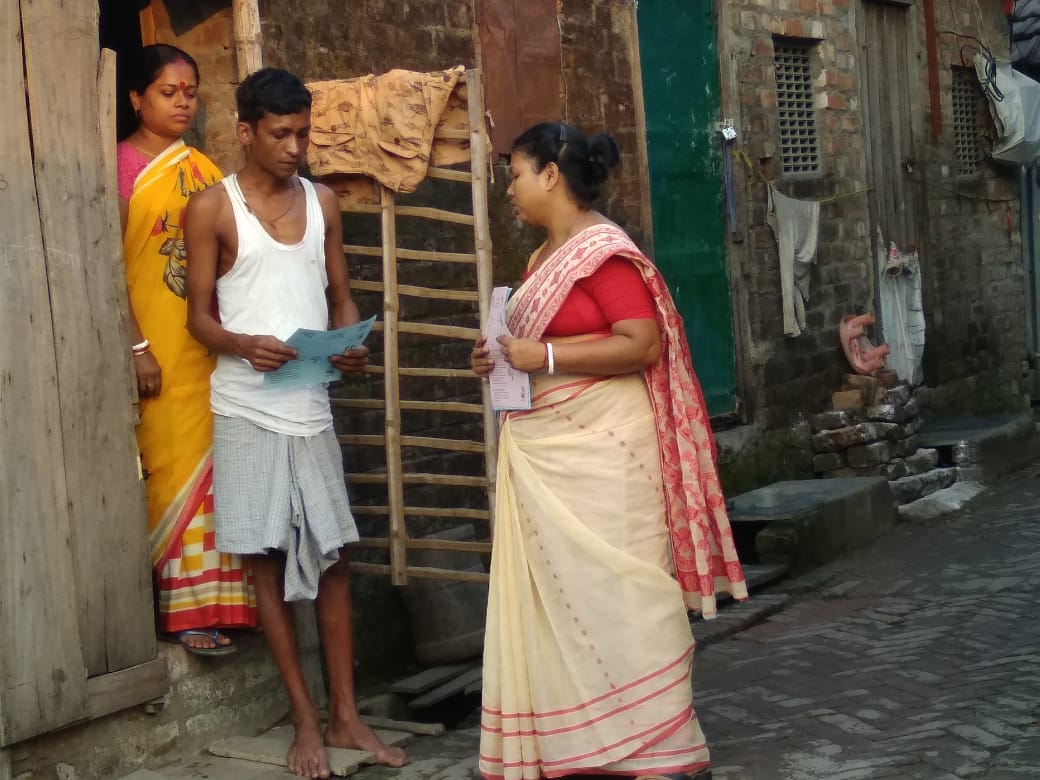
This changed when she came to know about Anjali, a Kolkata-based NGO which works with the West Bengal government, to provide mental care and rehabilitation to those suffering from depression.
“I had never known that there were people working to heal minds, and Anjali’s work seemed truly exciting,” she says.
At the time, the NGO was looking to train self-motivated women in aspects such as self-leadership, counselling and education, so that they could help others in need.
Although Manika does not have the educational qualifications, her determination impressed the NGO authorities and gave her a chance.
You may also like: Every Week, Odisha Doctor Walks for Kilometers to Ensure Tribals Get Medical Care!
Speaking to The Logical Indian, she said, “108 of us were taught for over a period of 7 months about mental health, depression and mental torture. They talked about the mind which really intrigued me. For the first time, I felt like I [had] found a direction in life and a profession where people’s thoughts [were] given importance. The first lesson was to realise our own traumas and pain points. If I [couldn’t] do that myself, how [could] I help others who are going through mental stress?”
After intense training, Manika passed the test and finally became eligible to counsel people.
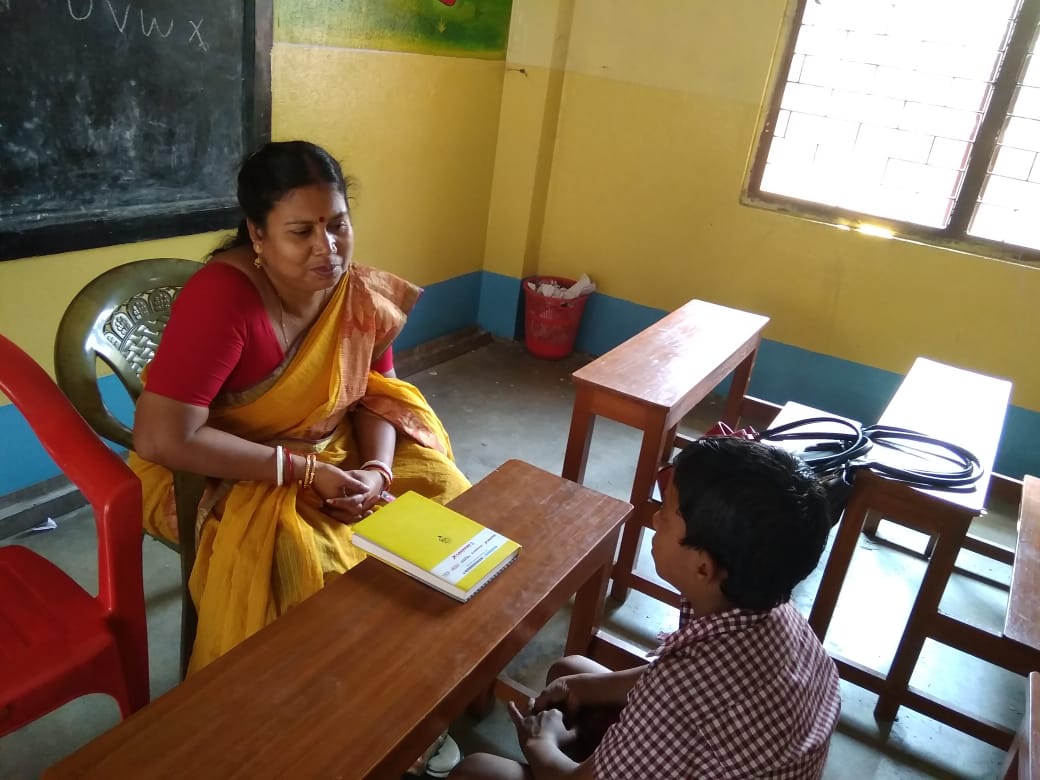
“We go from door to door and ask for a chat with the people. It is not hard for us to understand if someone is suffering from depression. Ironically, the lack of mental health awareness in the economically backward areas here works to our advantage. Once we get a hint of what a person is going through, we ask questions that surprise them because a stranger puts their innermost thoughts into words. And they realise that if a stranger can see right through them, it would be wrong to ignore the obvious symptoms,” she explains.
Manika is not qualified to give medical attention or prescriptions. So after a long, detailed chat—which she insists is just as soothing, freeing and relaxing as the following therapy sessions—the patients are asked to visit the Anjali centre for further guidance.
Depending on the seriousness of the situation, the patients are either directed to a psychiatrist or a psychologist. Some are prescribed medicines before continuing with counselling while others are only prescribed therapy.
You may also like: Jack Preger: The Welsh Pavement Doctor Who Spent 40 Years Treating Kolkata’s Poor
Apart from the door-to-door approach, the team also performs street plays and hands out pamphlets about the importance of mental health and how some signs should not be ignored.
So far, Manika has helped over 3500 Kolkata residents deal with depression through professional counselling. About 300 of them had given up their jobs as a result of their mental distress, but now, they are back on their feet with a healthier state of mind.
In 2017, she was awarded the CII Foundation Woman Exemplar Award for her relentless efforts. Speaking to The Weekend Leader, she had said, “I was speechless when I received the award. “Tears rolled down from my cheeks. The moment reminded me [of] my days of struggle, [and how] people would pass remarks to undermine my work.”
Manika has proven that mental health is a crucial aspect of our existence, irrespective of the background we come from. Her journey of overcoming her traumatic childhood, loneliness, and depression to help and counsel other people is not only exemplary but also inspirational.
(Edited by Gayatri Mishra)
Like this story? Or have something to share?
Write to us: [email protected]
Connect with us on Facebook and Twitter.
If you found our stories insightful, informative, or even just enjoyable, we invite you to consider making a voluntary payment to support the work we do at The Better India. Your contribution helps us continue producing quality content that educates, inspires, and drives positive change.
Choose one of the payment options below for your contribution-
By paying for the stories you value, you directly contribute to sustaining our efforts focused on making a difference in the world. Together, let’s ensure that impactful stories continue to be told and shared, enriching lives and communities alike.
Thank you for your support. Here are some frequently asked questions you might find helpful to know why you are contributing?


This story made me
-
97
-
121
-
89
-
167











